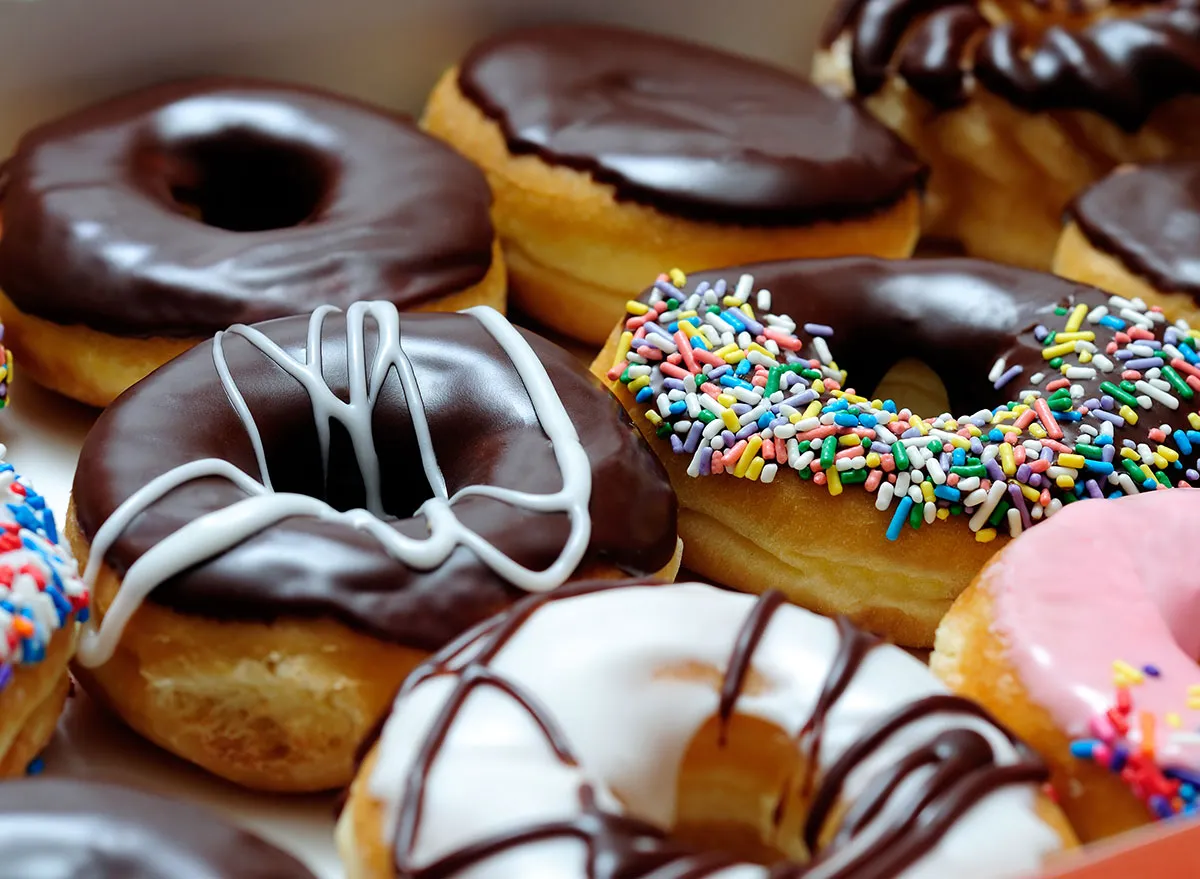New Study Reveals Shocking Revelation About Overeating and Obesity

Conventional wisdom about weight gain and obesity has long pointed to what’s called the “energy balance model” as a root cause—meaning you’re taking in more calories than you burn. But a new perspective published in The American Journal of Clinical Nutrition challenges that assumption, claiming that it’s not how much you eat that leads to weight gain. Instead, it’s what you’re eating that’s the culprit because of how your body reacts to it.
They suggest that foods with a high glycemic load—think highly processed, easily digestible carbs—eaten in an excessive amount kick off a carbohydrate-insulin reaction that changes the metabolism in a way that drives fat storage and overall weight gain.
Here’s how it works: When we eat highly processed carbs, the body boosts insulin secretion and suppresses a hormone called glucagon, which is used to break down glycogen, the stored form of glucose that’s used as the body’s fuel. That process of increased insulin and suppressed glucagon sends a message to the fat cells to store more calories. At the same time, the brain increases hunger signals because it perceives that there isn’t enough energy coming in.

The result? You stay hungry even if you’re eating enough, and that can lead to gaining excess fat. Plus, you could be eating fewer calories and still seeing your weight creep up.
This model is not new, the researchers suggest, and actually dates to the early 1900s. What’s fresh here is that the 17 scientists who authored this perspective now have enough clinical evidence to support this theory as the bigger cause of weight gain than the “calories in, calories out” model.
Although these researchers note more studies will have to be done to test both models, there are good reasons to consider focusing on moving away from highly processed carbs in the meantime.
“These foods generally lack high fiber content that aids in digestion and keeps the body full longer,” says Shena Jaramillo, RD, a registered dietitian at Peace and Nutrition. “This is another way they may contribute to unintended weight gain.”
Also, focusing on cutting calories—rather than tweaking food choices—could lead to too much of a calorie deficit, she adds, and that tends to slow your metabolism. Many people find themselves in a constant binge-and-restrict cycle that can be problematic for their metabolism and can kick off the cravings for high-fat, high-sugar foods for a quick energy boost.
That doesn’t mean you have to swear off high-glycemic foods forever, adds dietitian Kara Hoerr, RDN. Eating a modest amount and pairing them with a protein or healthy fat can slow down the release of carbs into the bloodstream, she says. Another factor along with what you eat, she suggests, is why.
“Many times we eat because of emotions, such as stress or boredom, even when we’re not actually physically hungry,” she says. “During these moments, our food choices are often quick-energy foods, like chips or chocolate. Continuing to eat out of emotion or outside of our physical hunger can also result in weight gain over time.”
The bottom line? Calories still matter, and likely always will, but taking a closer look at the “what” and “why” of your eating might make a big difference in changing whether you gain weight.
For more, be sure to check out Popular Foods That Increase Visceral Fat, Says Dietitian. Then, be sure to sign up for our newsletter.